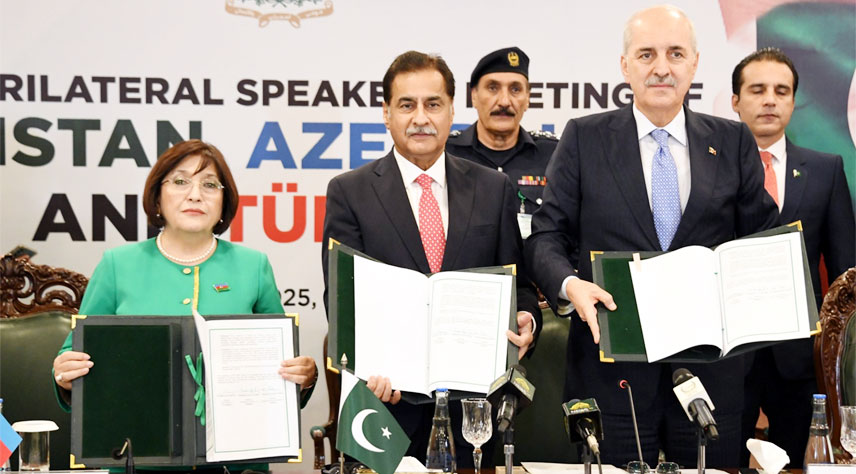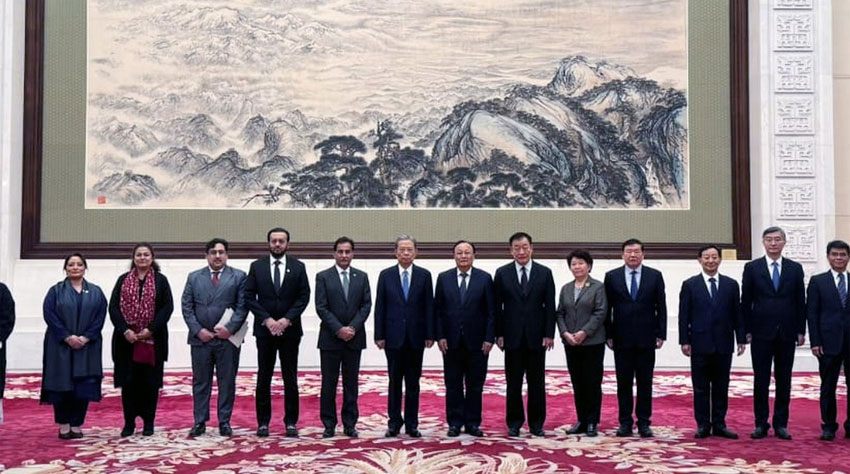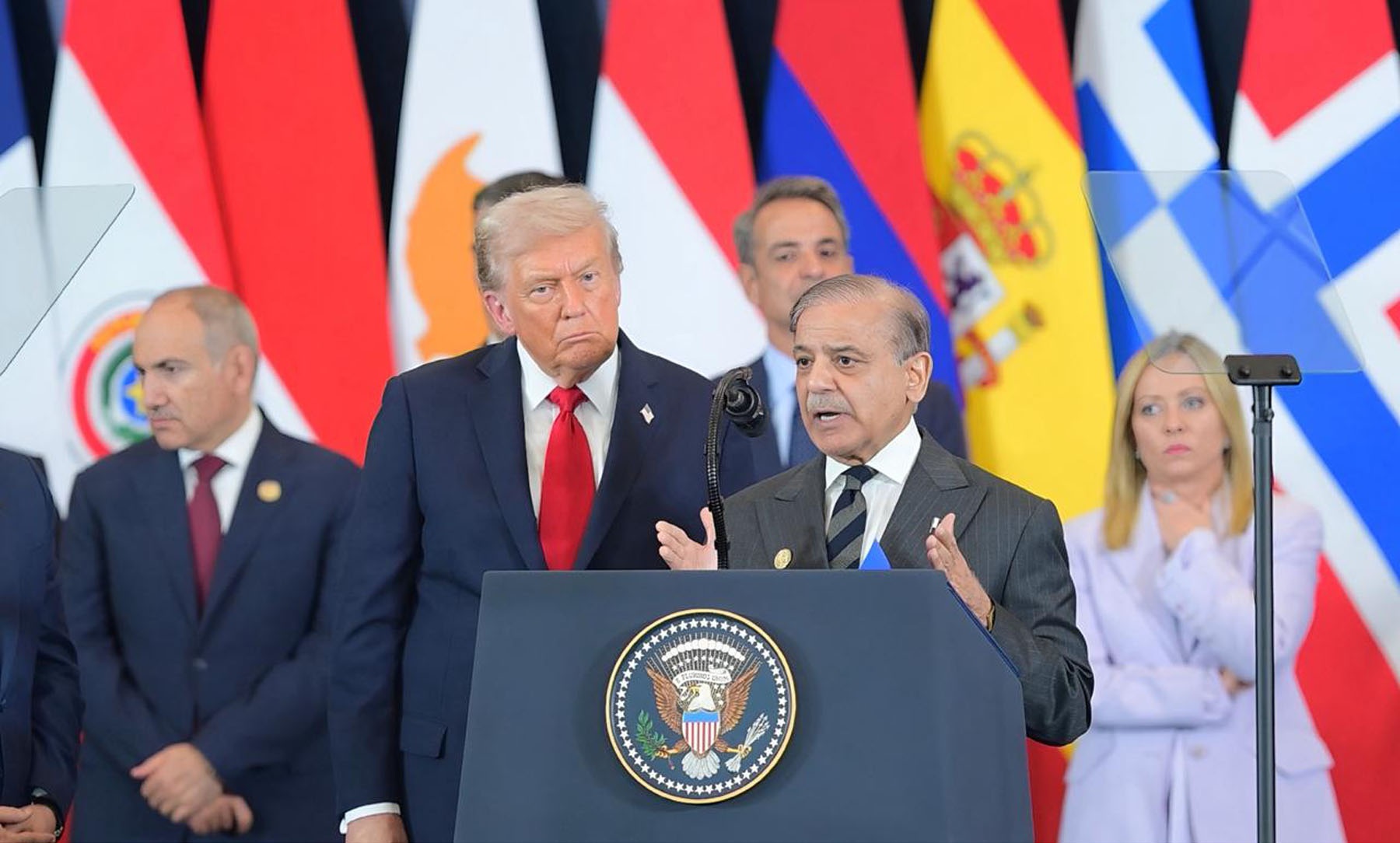In an era marked by shifting global alliances and regional power struggles, the Islamabad Declaration 2025 stands out as a powerful reaffirmation of shared faith, vision, and purpose among parliamentary leaders of Pakistan, Türkiye, and Azerbaijan. The phrase “One Nation, Three States” captures the essence of this alliance — a deep-rooted brotherhood founded on Islamic solidarity, historical ties, and a collective pursuit of peace and justice in the region.
The trilateral meeting of the Speakers of the National Assemblies of Pakistan, Türkiye, and Azerbaijan, hosted in Islamabad, was not merely a diplomatic formality. It was a declaration of intent — a commitment to transform centuries-old bonds into practical cooperation across political, economic, cultural, and security domains.
A Declaration of Unity and Purpose
The Islamabad Declaration, signed under the leadership of Speaker Sardar Ayaz Sadiq, Speaker Sahiba Gafarova, and Speaker Numan Kurtulmuş, symbolizes a unified stance of the three parliaments on global challenges. From Kashmir to Gaza, and from climate change to regional connectivity, the islamabad Declaration reflects a shared moral compass.
The participating countries reaffirmed that peace cannot be achieved without justice, and justice cannot exist where occupation and oppression continue. The explicit call for the peaceful resolution of the Jammu and Kashmir dispute in accordance with UN resolutions demonstrates the continued relevance of the issue within the Muslim world. Similarly, the declaration’s emphasis on the humanitarian crisis in Gaza highlighted the trio’s joint concern for the Palestinian people and their unwavering support for their right to self-determination.
The Vision of “One Nation, Three States”
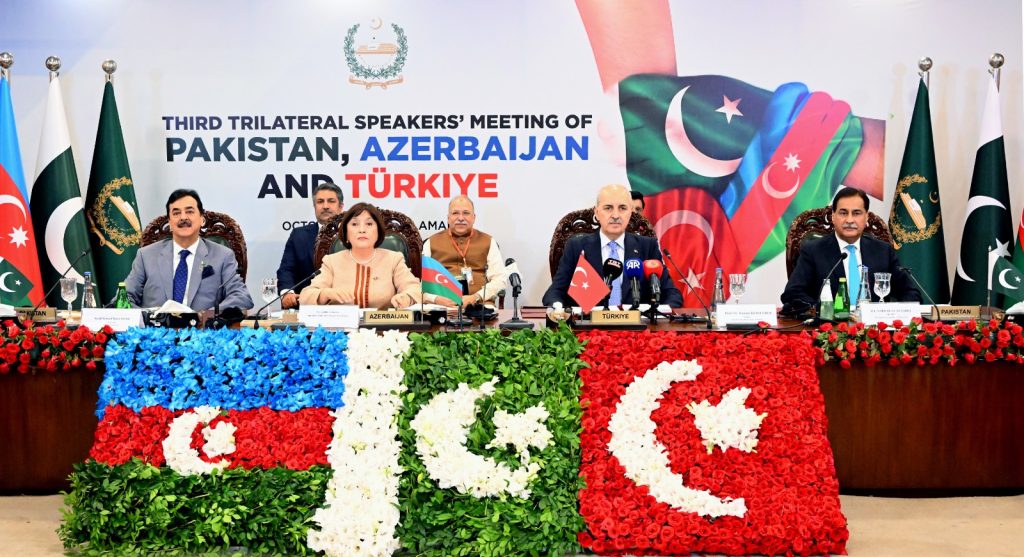
The idea of One Nation, Three States originates from a shared sense of belonging among Pakistan, Türkiye, and Azerbaijan. Although geographically apart, these nations are connected through faith, culture, and a common strategic vision. Türkiye’s historic leadership of the Muslim world, Azerbaijan’s resilience as a modern Muslim-majority state in the Caucasus, and Pakistan’s pivotal role in South Asia together form a powerful axis of cooperation.
The phrase does not imply a single political entity; rather, it symbolizes a unity of purpose and destiny. Each state operates independently, yet together they reflect one nation’s spirit — a nation that transcends borders through shared values of justice, faith, and mutual respect.
This concept was reinforced during the Islamabad meeting, where leaders emphasized strengthening parliamentary ties to bring the people of the three nations closer. The declaration calls for institutionalized cooperation through joint working groups, parliamentary friendship forums, and cultural exchanges — making unity a tangible reality rather than a symbolic expression.
Parliamentary Diplomacy — A New Frontline of Cooperation
While governments conduct diplomacy through ministries and embassies, parliamentary diplomacy creates people-centered dialogue — one that reflects the will of elected representatives. The Islamabad Declaration has elevated this channel to a new level, ensuring that the cooperation among Pakistan, Türkiye, and Azerbaijan goes beyond state-to-state relations and directly connects with their citizens.
Speaker Sardar Ayaz Sadiq aptly noted that parliaments are the “voice of the people,” and when the voices of friendly nations unite, they amplify messages of peace and progress. Parliamentary cooperation will enable legislation to align on issues such as trade facilitation, climate action, education, and human rights, fostering consistent progress beyond political transitions.
Regional Peace Through Shared Strength
The Islamabad Declaration also reflects a strategic understanding — peace and stability in one region directly impact others. Pakistan faces the complexities of South Asia, Türkiye remains a key player in the Middle East and Eastern Mediterranean, while Azerbaijan lies at the crossroads of Europe and Asia. Together, they represent three regions that can collectively influence the balance of power and promote multilateral cooperation.
Their unity sends a message to the world: the Muslim world is capable of leading peace efforts through cooperation rather than confrontation. The Islamabad Declaration promotes diplomatic solutions to conflicts and calls for equitable treatment of all nations under international law.
For Pakistan, the endorsement of its stance on Kashmir by Türkiye and Azerbaijan strengthens its international narrative. For Türkiye, the partnership reinforces its leadership within the Islamic world. For Azerbaijan, it solidifies strategic alliances following its victory in the Nagorno-Karabakh conflict and its post-war reconstruction efforts.
Economic and Cultural Connectivity
Beyond political symbolism, the Islamabad Declaration envisions practical cooperation in trade, transport, and energy. All three countries are part of ambitious regional connectivity projects — including the China-Pakistan Economic Corridor (CPEC), Trans-Caspian transport corridors, and Middle Corridor initiatives led by Türkiye. Enhanced collaboration among them could link South Asia, the Middle East, and the Caucasus in a new arc of prosperity.
Cultural diplomacy also plays a vital role. Shared media productions, tourism partnerships, and educational exchange programs can promote understanding among their peoples. Joint initiatives celebrating shared Islamic heritage, art, and history could strengthen the emotional bond that already unites their societies.
Islamabad — The New Center of Trilateral Diplomacy
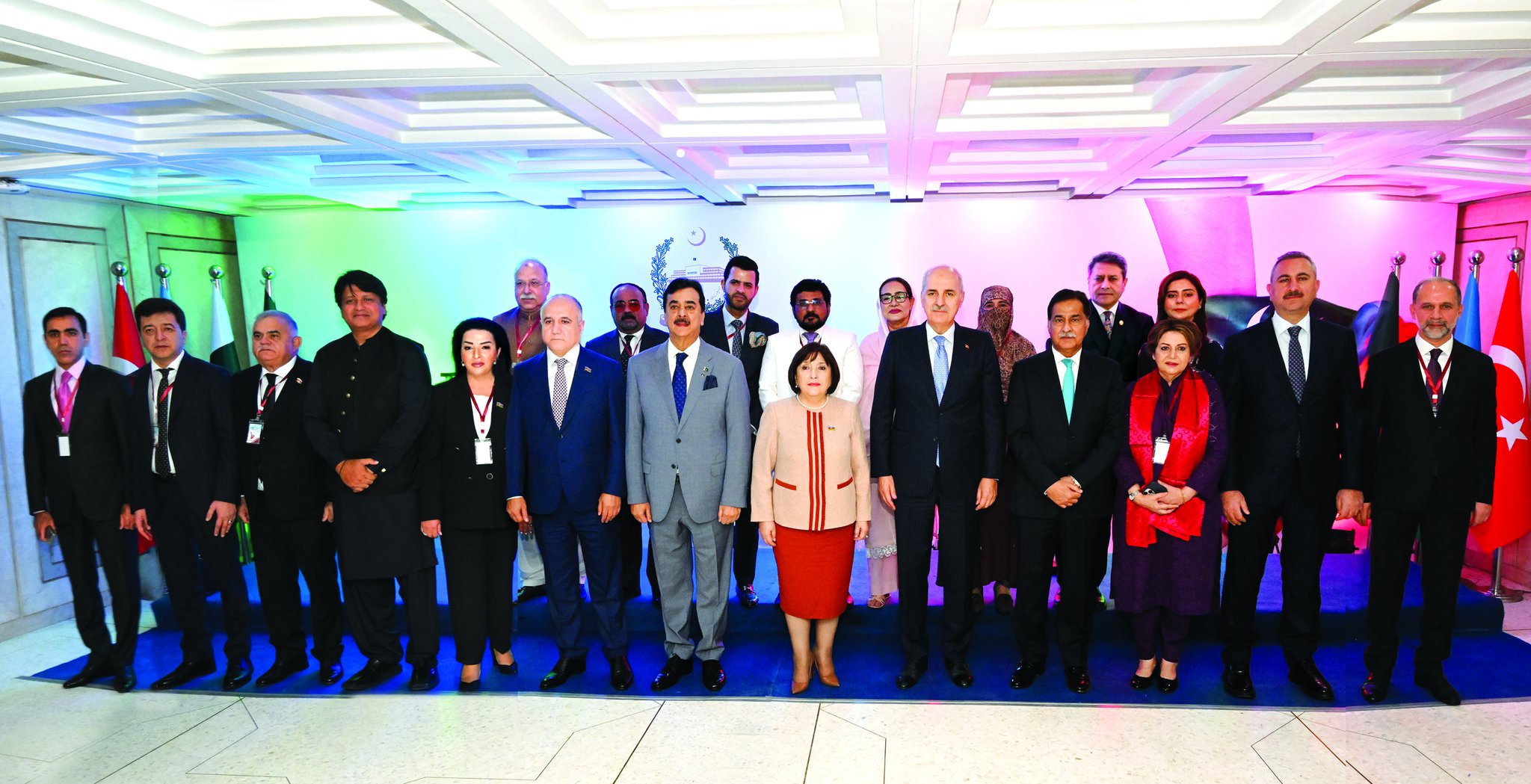
By hosting the Trilateral Speakers’ Conference, Islamabad positioned itself as a hub of regional dialogue and Muslim solidarity. The success of this meeting builds upon earlier high-level engagements among the three countries — such as joint military exercises, defense cooperation, and coordination within the Organization of Islamic Cooperation (OIC).
The Islamabad Declaration sends that very message — that Muslim nations can collaborate constructively to uphold justice and global peace.
A Future Shaped by Unity
The Islamabad Declaration 2025 will be remembered as more than a diplomatic document; it will be seen as the formal manifestation of the “One Nation, Three States” vision. It symbolizes unity without uniformity, cooperation without coercion, and brotherhood without boundaries.
For Pakistan, it reaffirms its role as a bridge between Central and Western Asia. For Türkiye, it validates its vision of building stronger alliances across the Muslim world. For Azerbaijan, it confirms its emergence as a confident and respected regional actor.
Together, they stand as three pillars of an enduring partnership — one that seeks peace through strength, prosperity through cooperation, and progress through shared destiny.
Conclusion
The Islamabad Declaration is not an end but a beginning — the beginning of a new chapter in Muslim world diplomacy. The slogan “One Nation, Three States” now resonates beyond symbolism; it defines a living alliance grounded in faith, friendship, and future-oriented vision.
As Pakistan, Türkiye, and Azerbaijan move forward hand in hand, the world witnesses a new paradigm of cooperation — one that transforms shared history into shared destiny, and turns regional brotherhood into global leadership.
Mr. Sabahuddin Qazi is known for his insightful political reporting and media management thorough coverage of parliamentary affairs.

